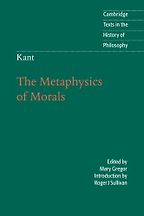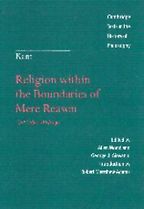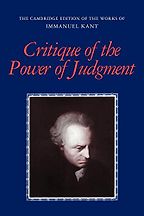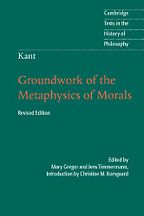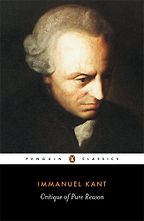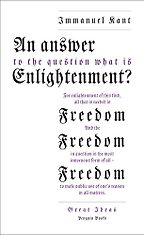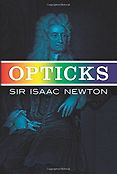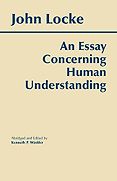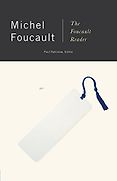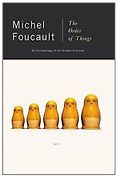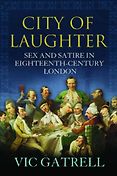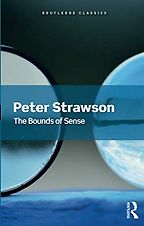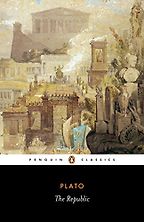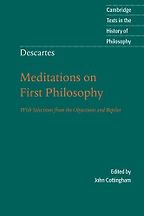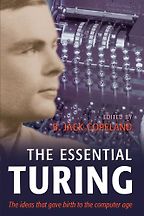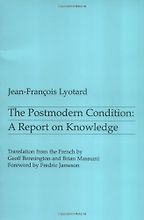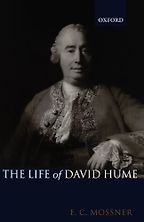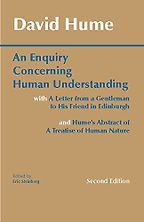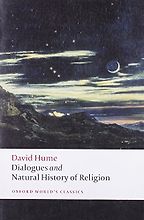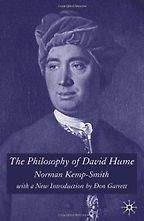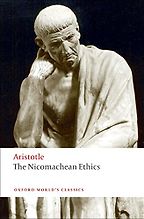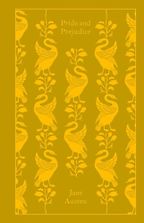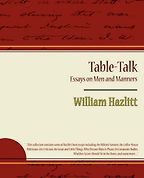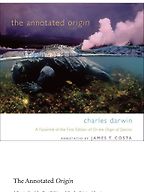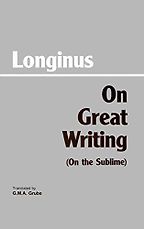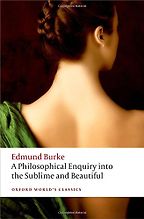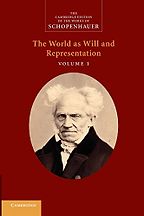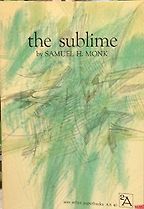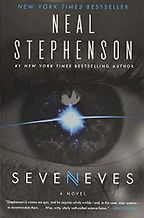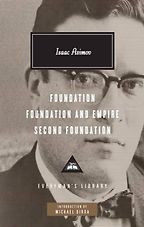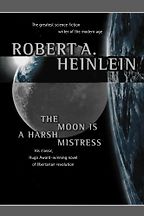Books by Immanuel Kant
“The thing I love about Kant is he goes on and on in most of his books about a sense of duty. He talks about duty in a variety of contexts: to family, to country, to children, but also about the duty to do the right thing. Most people, when they think of duty, it’s one of least exciting words that they can imagine. But Kant argues that a lot of your moral duty is innate. And I think our duty towards humanity and towards being the guardians or shepherds of life is also something that’s innate and activated by awareness of extinction. I take a lot of his writings on duty very much to heart, I guess I’d say.” Read more...
Space Travel and Science Fiction Books
Christopher Mason, Scientist
“Kant’s answer is that we need religion as a kind of non-rational prop – to underpin morality” Read more...
Adrian Moore, Philosopher
“Kant divides the sublime into two main kinds: the mathematical sublime and the dynamical sublime. It’s a bit jargony, but it’s a matter of what facet of reason is in relation to the imagination. Generally, the sublime is an aesthetic experience in which the imagination is in an ultimately harmonious relation between imagination and reason. In the mathematical case, it is theoretical reason—because this is what gives us the idea of the infinite—and in the other case, it’s practical reason. This is the kind of sublime that we feel when confronted with something that threatens us, like a storm or hurricane. The idea here is that we have a sensory disclosure of our own freedom. And it is practical reason that is being disclosed.” Read more...
Robert Clewis, Philosopher
“No one could claim that it is an easy read, but it lays out the fundamental principles of Kant’s moral philosophy” Read more...
Adrian Moore, Philosopher
“This is the greatest philosophical book of all time. This is Kant’s masterpiece…He’s interested in the limits to what we can know; he’s interested in the limits to what we can use pure reason to ascertain; he’s interested in the limits to what we can even think about. He’s interested in these limits in various different senses. On the one hand, he’s keen to approach them, to map out the limits from within by doing as much as possibly can be done through the exercise of reason; but he’s also interested in stepping up a level and looking at them from above, asking questions of principle about where these limits are to be drawn and what might lie beyond them. Of course, there’s an inevitable problem that arises there because if you’re asking questions about what lies beyond the limits of knowledge then inevitably the question arises: can you hope to know any answers to such questions? For if you claim you can, aren’t you involved in self-stultification? So, all these tensions are there throughout the Critique, and they’re part of what makes it such a fascinating read.” Read more...
Adrian Moore, Philosopher
Interviews where books by Immanuel Kant were recommended
The best books on The Enlightenment, recommended by Sophie Gee
The author of The Scandal of the Season – and Princeton University professor – gives an 18th century literature specialist’s view of the Enlightenment.
The Best Immanuel Kant Books, recommended by Adrian Moore
Immanuel Kant was born in Königsberg, lived in Königsberg, and never travelled very far from Königsberg—but his mind ranged across vast territories, says Oxford philosophy professor Adrian Moore. He selects five key texts for coming to grips with the work of “the greatest philosopher of all time.”
The best books on The Philosophy of Information, recommended by Luciano Floridi
The Oxford professor of philosophy and ‘the ethics of information’ says methods for discussing the ethics of information technology have been latent in philosophy from its origins. He picks the best books on the philosophy of information.
The best books on David Hume, recommended by Simon Blackburn
Hume had a message he wanted to get out — particularly as regards skepticism about religion — but he was no proto-Richard Dawkins, says Cambridge philosopher, Simon Blackburn. He chooses the best books on (or by) David Hume.
The best books on Ideas that Matter, recommended by A C Grayling
In the 18th and 19th centuries, intellectuals engaged in the ‘great conversation,’ a debate about ideas, politics, and beliefs, says British philosopher A C Grayling, author of Ideas That Matter. He picks out five books on ideas about how we live our lives and how we view the world, from Aristotle to Charles Darwin.
-

1
On the Sublime
by Longinus -

2
A Philosophical Enquiry into the Sublime and Beautiful
by Edmund Burke -

3
Critique of the Power of Judgment
by Immanuel Kant -

4
The World as Will and Representation
by Arthur Schopenhauer -

5
The Sublime: A Study of Critical Theories in XVIII-Century England
by Samuel Monk
The best books on The Sublime, recommended by Robert Clewis
The best books on The Sublime, recommended by Robert Clewis
Whenever we go in search of rugged landscapes, thundering waterfalls or awesome vistas, we are in search of ‘the sublime’—an aesthetic quality that has been the subject of significant philosophical, artistic and psychological study. Here, philosopher Robert Clewis talks us through the landmark studies of the sublime, and makes some recommendations for those seeking introductory books on the subject.
Space Travel and Science Fiction Books, recommended by Christopher Mason
Space travel may be the stuff of science fiction but some of it is getting closer and closer to becoming reality. What’s more, we have a duty to pursue it, says Christopher Mason, Professor of Genomics, Physiology, and Biophysics at Weill Cornell Medicine and author of The Next 500 Years, a blueprint of how to set about leaving our solar system. Here, he recommends his favourite science fiction about space travel, and an essential philosophy book.
